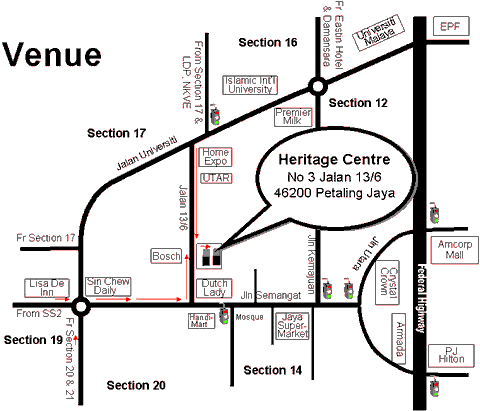ANNOUNCEMENT
KAIROS PUBLIC FORUM
Free Admission
Religious Liberty Under Threat
Time/date: 8.30pm, Thu 31 January 2008
Venue: Heritage Centre, Petaling Jaya
Speakers: Dr Ng Kam Weng & Mr Lim Heng Seng
Malaysian citizens – Malaysian Christians in particular – should be greatly disturbed by recent events that give alarming evidence of the erosion of religious liberty in the country. These events include civil court judgments that advise non-Muslims to go the shariah courts to settle matters of divorce and child custody, body snatching from funeral parlors, the demolition of temples and churches, and the seizures of Sunday School materials and Christian story books for children from bookshops. Of great concern is the Cabinet announcement that non-Muslims may not use the word ‘Allah’. This prohibition would ban Holy Scriptures (Alkitab) and forbid Christians from using well established liturgy, hymns and prayers in their worship services.
Are these events merely ad-hoc actions by the authorities or do they reflect the implementation of a more fundamental Islamic policy that informs and guides the authorities in their treatment of peoples of other faiths? How should Christians view these developments? This public forum will provide an analysis of current trends in our nation and explore how Christians may firmly and constructively respond to these challenges that threaten religious liberty in general and the Christian faith in particular.
About the speakers
Dr Ng Kam Weng is Research Director of Kairos Research Centre.
Mr Lim Heng Seng, a former senior federal counsel and chairman of the industrial court, is currently a partner in a law firm in Kuala Lumpur.
